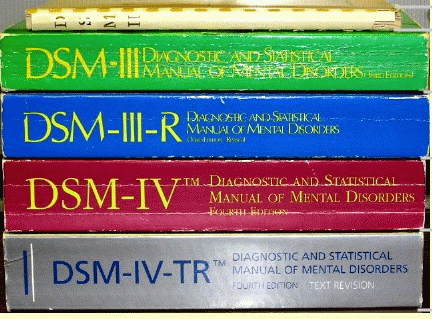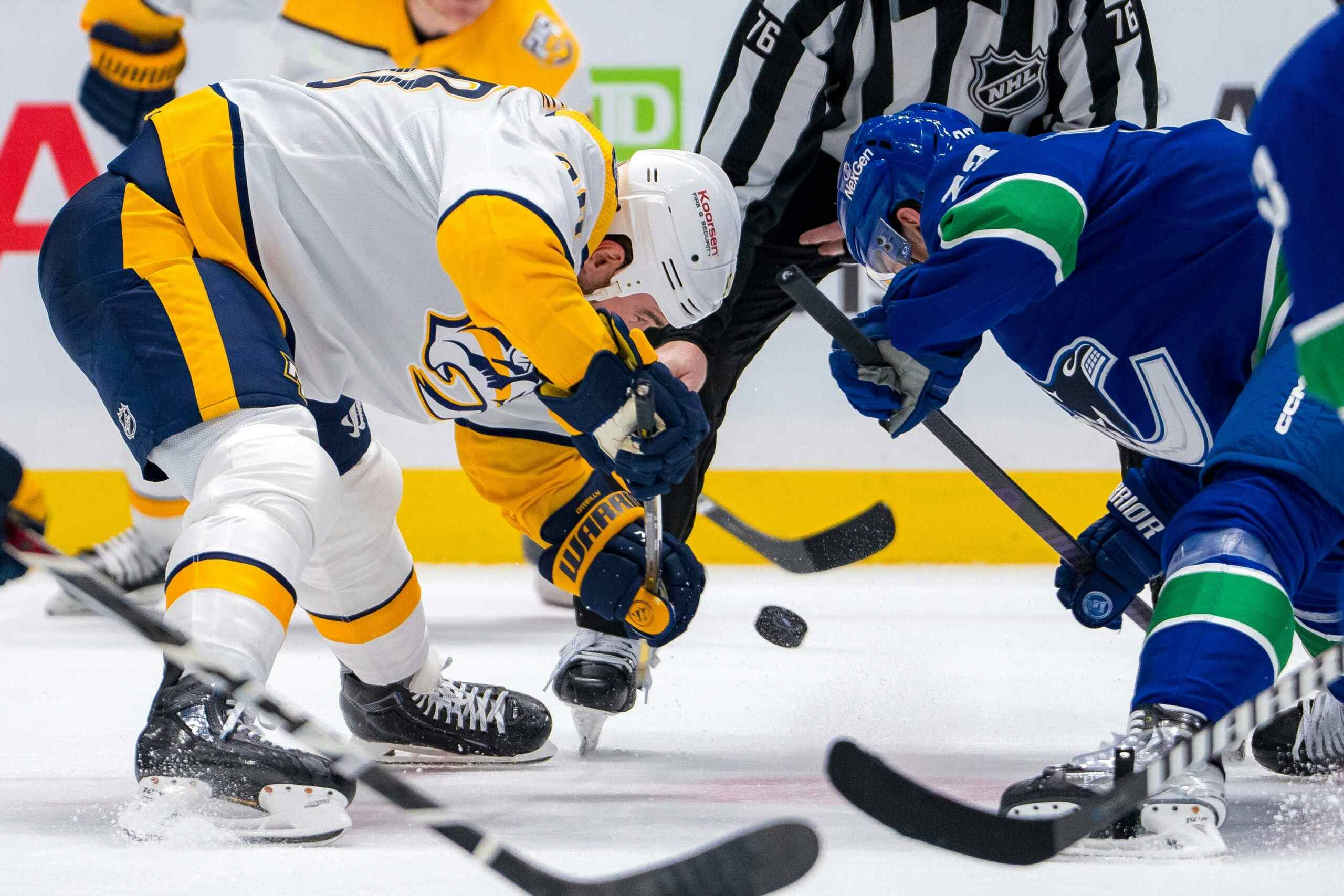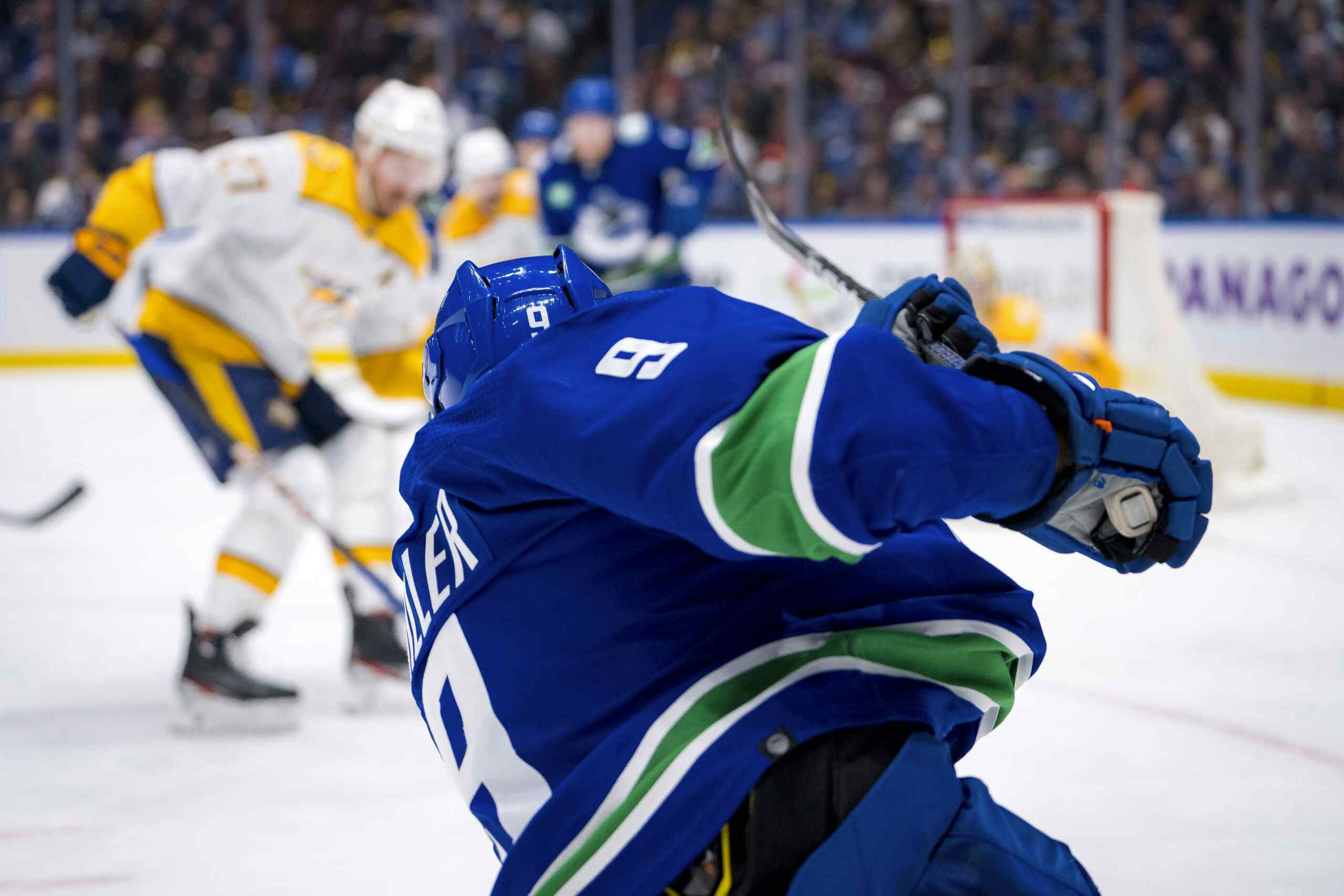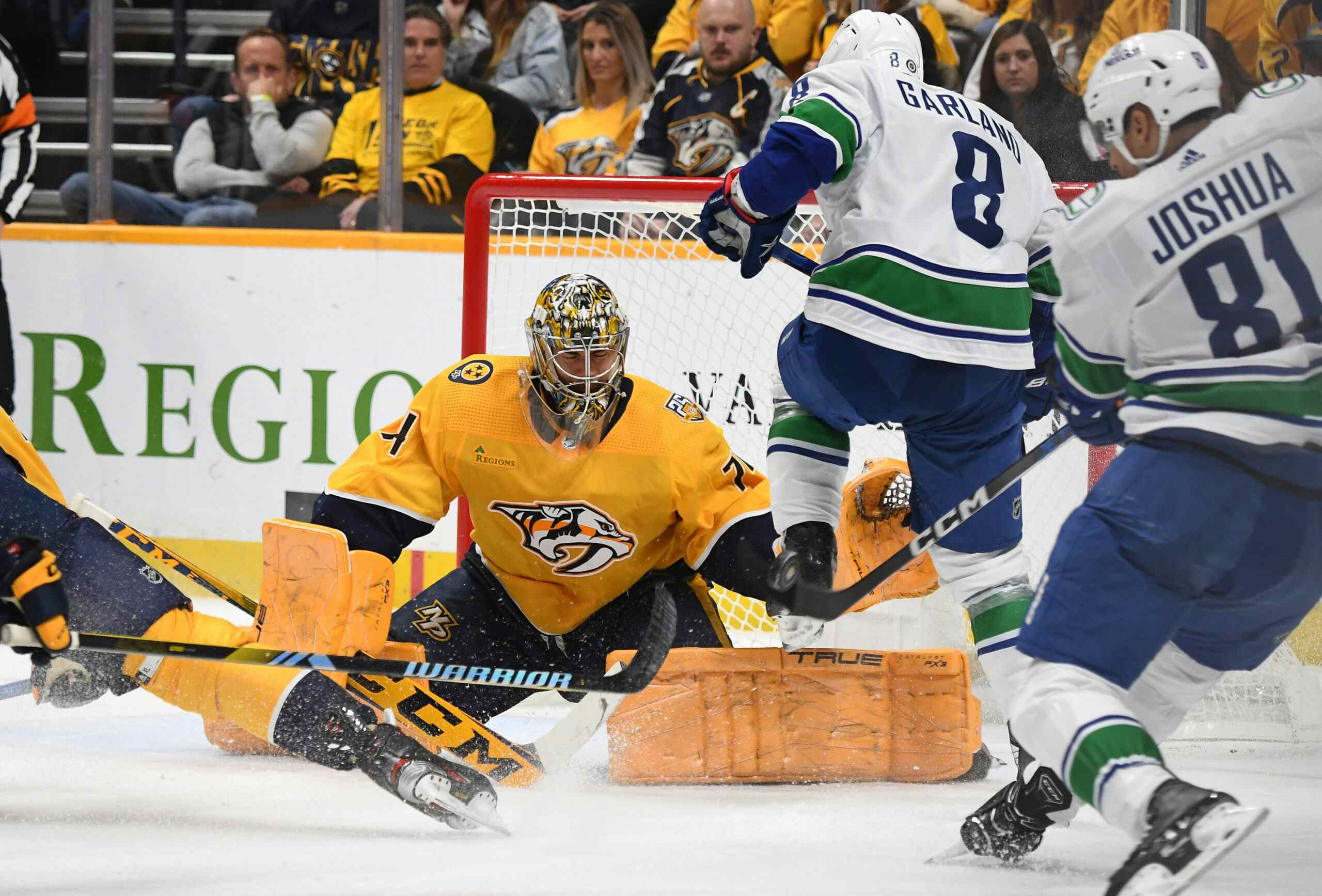Hockey Diseases in the DSM IV? – Part One

What is the DSM IV you ask? DSM stands for Diagnostic and Statistical Manual of Mental Disorders. This manual covers mental health disorders for children and adults, and lists all known information about these disorders, from origins, causes, to treatment. Basically it’s a giant book of information on mental disorders. Does your cousin yawn too much or count to ten and always skips number 7? The DSM will probably have something on it. The Wikipedia before there was Wikipedia. Except with slightly more research.
Why do I bring up the DSM you ask? Apparently the NHL is trying to get several hockey related disorders to be included into the DSM. There have been several stories of friends and family coming across a hockey fan in their life, and getting scared, frightened, or angry at their behavior. Stories of non-hockey fans not understanding what someone in their life is going through. Stories of relationships ending between hockey fans and non hockey fans. So rather than have people getting angry over things they don’t understand, the NHL wants people to try and accept the people in their lives who suffer from hockey related disorders. They want them to realize that hockey fans suffer from a disease, and that they often can’t help themselves or their actions.
Luckily, I always have connections around the NHL. So I am able to share with you some of the disorders that will be included in the next DSM. It is my hope that you will pass this on to any non-hockey fan so we can get a head start on letting the world know that being a hockey fan isn’t always a choice. Sometimes it’s a disease. Please note that none of these disorders have any known cures. You can only learn to manage them, not cure them.

Head Coach-itis:
Symptoms: This disease is often characterized by talking to the TV. Often times you will hear the person telling the TV what to do, and when asked, the person actually believes the players on the TV can hear them. Often times people will pick up an object to emphasize a point by making a stabbing motion at the TV. Sometimes the person will pick up a hockey stick and motion what the players should be doing. “You need to get your wrists into that shot buddy!”
How to cope with this disease: The best thing to do is wait for them to waste their energy ranting at the TV. Once the game is over, present them with a beer or a massage and tell them that you “don’t understand why the coach is so terrible.”
What not to do: Tell them you think the coach probably knows more about hockey than them and that they should just calm down. Be prepared to duck from flying furniture should you ever utter this.

Grabbing at Straws-itis:
Symptoms: Have you ever wandered in upon a hockey fan wearing far too many articles of clothing? They are not cold. They are not sick. They are most likely suffering from Grabbing at Straws-itis. The symptoms of this include several layers of clothing, wearing as many hats, socks, underwear as possible, as long as it includes their favorite teams logo on it. Many times the clothes will be dirty and will not have been washed for many weeks, because washing it “would wash the luck out of it.” They will often complain of needing more things to wear, because the team needs their help.
How to cope with this disease: Discreetly wash the clothing when they are not looking. Make sure to wash it with water only. Do not wash it with soap.
What not to do: Do not get caught touching, or washing these clothes ever, or so help you god if the team loses and they find out about it; they will blame you for ruining the luck on the clothes and will demand you start a new collection of items to try and find some more luck.

Grabbing at Straws-it is 2:
Symptoms: Very similar to Grabbing at Straws-itis 1, but this one is characterized by a negative version of acquiring luck. In this case, the subject will often create a makeshift voodoo doll and proceed to stab it, kick, it, shoot it, drop kick it, poke it in the eye, and in most cases, light it on fire and laugh maniacally as it burns. The subjects’ pupils will often be very wide, they often smell like beer, and they will look at you like you’re the crazy one if you ask them what they’re doing.
How to cope with this disease: Treat this person as if they are a danger to themselves. Remove all sharp objects and any chemicals that can burn or be used to start a fire. Try and create a makeshift safe voodoo doll and discreetly place it near the TV in the hopes they choose the safe one instead of making their own unsafe voodoo doll. It is best to use a balloon for the voodoo doll. The popping of the balloon often makes the subject feel like they accomplished their goal.
What not to do: Never try and take the voodoo doll away from the person. There is potential they will then view you as a voodoo doll, and they may attempt to stab you with scissors. Relatively unknown fact, this was the real reason behind Ashton Kutcher and Demi Moore getting a divorce. Ashton took Demi’s voodoo doll of Drew Doughty.

Blair Witch-itis:
Symptoms: Do you sometimes come across your hockey friend and they appear to be in a coma? They will be staring listlessly into the distance, not responding to any stimuli? Sometimes they will just stand in a corner, staring at the wall, not moving an inch? This is called Blair Witch-itis. This happens because the hockey fan missed an insanely good game because they chose or were forced to do something else that night. This can also happen when they have PVR’d the game but someone tells them the outcome of the game. This condition can be worsened in an event when the subject missed a historic game due to attending a function they were forced to attend by their significant other, friends, family or employer. Subjects can often not talk for weeks following this incident.
How to cope with this disease: Make sure to feed the subject. Leave food and water near them. Don’t worry if they don’t respond at first. Eventually survival instinct will kick in and they will eat. Eventually they will come out of this on their own terms. Just leave them on their own.
What not to do: Under NO circumstances are you to EVER utter the words “There will be other games”. This will result in a silent rage that you will most likely never recover from. Be prepared for the subject to go on the offensive and bring up that time in high school where you made out with their best friend and repeatedly bring up more and more things from the past in an attempt to bury you in an avalanche of mental pain and anguish.

It Never Happened-itis:
Symptoms: This disorder is an odd one in that it’s hard to tell when it is occurring. What happens with this one is you will see a person intently playing on their computer, ignoring everything that is happening on the TV behind them. The only way to tell if this is just a normal event or the disease itself, is by checking the TV. If the subjects’ favorite team is getting destroyed, then It never Happened-itis is occurring. The subject will ignore anything to do with the TV and will intently play their game, or surf the internet. They will most likely mutter to themselves during this time, and will probably be typing far too hard on their keyboard.
How to cope with this disease: Act like nothing out of the ordinary is happening. Just go about your business as usual. Again, offer up the beer or massage for later technique. The subject will most likely angrily brush you off at first, but will later take you up on your offer. Plant the seed of niceness and let it grow.
What not to do: NEVER EVER TURN OFF THE TV. I cannot stress this enough. If you turn off the TV you will make the subject revert to a feral like stage of human development where they will snarl, scream, and probably lunge at you in an attempt to bite you. Turning off the TV is like pulling the plug on a coma patient. You have to let the subject come to terms with the loss. By turning off the TV you are officially ending the game and “ruining the chance of a comeback.”

Dan Cloutier-itis:
Symptoms: This disorder does not involve a gun, but will involve the mimicking of putting a gun in one’s own mouth. They will often say things like “Oh god, shoot me now” or “Kill me. Please.” or “the only merciful thing would be to end it now.” The victim will never harm themselves, but instead they are mentally killing themselves off from being attached to the game. By killing off their attachment to the game, they are allowing themselves to better cope with the inevitable loss and disappointment. This disease most often occurs when a bad goalie is put into the game, or when a player they hate is getting increasingly more ice time. Often the subject will rock back and forth as if to ward off the disappointment that is trying to invade their brain.
How to cope with this disease: Just agree with every single thing they say about the bad player. “Yes, that player is awful. Yes he SHOULD be dragged into the street and beaten. Yes he probably is doing this on purpose just to anger you.” Agree agree agree. Remember the rule: ABN. Always Be Nodding. ABN. Don’t forget this.
What not to do: Never tell the person to “lighten up” or say “They might still come back.” If you do this, be prepared for an hour long speech about the history of the player in question, as well as the history of the franchise in question, and about how often they have let the subject down. You cannot stop this speech once it starts. All you can do is wait it out.
Part 2 will appear later this week.
Recent articles from The Stanchion





